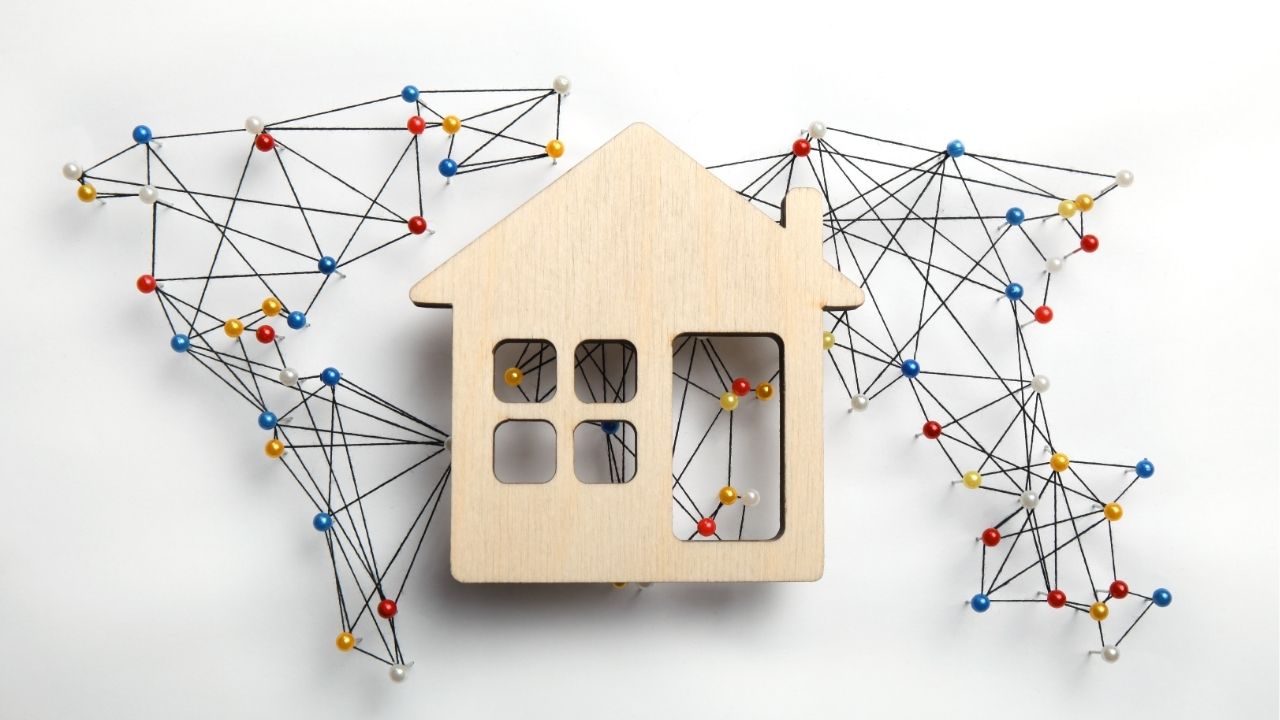 When selling your home, first impressions are everything. A clean, well-organized space allows potential buyers to envision themselves living there and can even increase the perceived value of your property. Cleaning is not just about making your home look good; it’s a strategic move to ensure your home stands out in a competitive market. Here’s how to tackle the cleaning process effectively when preparing your home for sale.
When selling your home, first impressions are everything. A clean, well-organized space allows potential buyers to envision themselves living there and can even increase the perceived value of your property. Cleaning is not just about making your home look good; it’s a strategic move to ensure your home stands out in a competitive market. Here’s how to tackle the cleaning process effectively when preparing your home for sale.
1. Declutter to Highlight Space
Decluttering is the first step in preparing your home for sale. Buyers want to see the potential of each room, not your personal belongings.
-
Start Room by Room: Go through each room and remove items that are unnecessary or overly personal, such as family photos or memorabilia.
-
Minimize Furniture: Excess furniture can make a room feel smaller. Keep only essential pieces to create an open, spacious look.
-
Organize Closets and Cabinets: Buyers often peek inside closets and cabinets to assess storage space. Keep them tidy to create a positive impression.
A decluttered home feels larger, cleaner, and more inviting, helping buyers imagine themselves in the space.
2. Deep Clean Everything
Once the clutter is gone, it’s time for a deep clean. A sparkling clean home signals to buyers that it has been well-maintained.
-
Focus on Floors and Carpets: Steam clean carpets and mop hard floors to remove stains and odors. Consider hiring professionals if needed.
-
Clean Windows and Mirrors: Sparkling windows let in more light, and clean mirrors add a sense of freshness to bathrooms and bedrooms.
-
Tackle the Kitchen and Bathrooms: Pay special attention to these areas. Scrub grout, polish fixtures, and clean appliances to make them shine.
-
Eliminate Odors: Use neutral air fresheners, open windows, or bake cookies before showings to create a pleasant smell throughout the home.
3. Don’t Overlook Curb Appeal
The exterior of your home is the first thing buyers see. Make it count.
-
Mow the Lawn and Trim Shrubs: A well-maintained yard gives a great first impression.
-
Plant Seasonal Flowers: Bright flowers near the entryway can make your home feel welcoming.
-
Pressure Wash Outdoor Surfaces: Clean driveways, sidewalks, and the exterior of your home to remove dirt and grime.
-
Clean the Front Door and Add Touches: A clean, freshly painted front door with a tasteful welcome mat can do wonders for your home’s appeal.
4. Stage and Style
Once your home is clean, consider staging to showcase its best features.
-
Arrange furniture to maximize space and light.
-
Add neutral decor and accents, such as fresh flowers or simple artwork, to enhance the home’s appeal.
5. Regular Maintenance During Showings
Keep your home in tip-top shape while it’s on the market. Vacuum regularly, wipe down surfaces, and ensure beds are made before every showing.
Why Cleaning Matters
A clean, well-prepared home tells buyers that it has been cared for, which builds trust and increases the likelihood of offers. Buyers are more likely to make an emotional connection with a home that feels fresh, inviting, and move-in ready.
By following these cleaning tips, you can make your home stand out and leave a lasting impression on potential buyers.
 Finding your dream home is one of the most exciting and personal journeys you’ll ever take. Just like crafting the perfect cup of coffee, choosing the right home is all about finding the blend that matches your unique preferences. For some, it’s all about practicality, while for others, it’s about charm, savings, or convenience.
Finding your dream home is one of the most exciting and personal journeys you’ll ever take. Just like crafting the perfect cup of coffee, choosing the right home is all about finding the blend that matches your unique preferences. For some, it’s all about practicality, while for others, it’s about charm, savings, or convenience. When most people think about buying a home, the spring and summer months often come to mind. After all, that’s when the market is buzzing with activity. However, what many don’t realize is that January can be one of the best times to purchase a home. From motivated sellers to financial benefits, buying during the winter months offers several unique advantages for savvy homebuyers.
When most people think about buying a home, the spring and summer months often come to mind. After all, that’s when the market is buzzing with activity. However, what many don’t realize is that January can be one of the best times to purchase a home. From motivated sellers to financial benefits, buying during the winter months offers several unique advantages for savvy homebuyers.
 When it comes to real estate, you’ve likely heard the phrase, “Location, location, location!” This isn’t just a catchy mantra, it’s a fundamental truth that underscores the value of any property. While a home’s design, size, and features play a role in your buying decision, the location is often the most critical factor that determines both the property’s current worth and its long-term potential.
When it comes to real estate, you’ve likely heard the phrase, “Location, location, location!” This isn’t just a catchy mantra, it’s a fundamental truth that underscores the value of any property. While a home’s design, size, and features play a role in your buying decision, the location is often the most critical factor that determines both the property’s current worth and its long-term potential. As we step into 2025, it’s the perfect time to reflect on the possibilities a new year can bring, especially when it comes to your real estate goals. Whether you’re dreaming of buying your first home, investing in property, or upgrading your current living space, setting clear, actionable resolutions can help guide your journey and turn your aspirations into reality.
As we step into 2025, it’s the perfect time to reflect on the possibilities a new year can bring, especially when it comes to your real estate goals. Whether you’re dreaming of buying your first home, investing in property, or upgrading your current living space, setting clear, actionable resolutions can help guide your journey and turn your aspirations into reality. As 2025 begins, I want to thank my amazing clients, past, present, and future for trusting me to guide you on your real estate journey. Whether you’ve found your dream home, are preparing to sell, or envision a move this year, I’m grateful to be part of your story.
As 2025 begins, I want to thank my amazing clients, past, present, and future for trusting me to guide you on your real estate journey. Whether you’ve found your dream home, are preparing to sell, or envision a move this year, I’m grateful to be part of your story. As we approach the end of another year, I want to take a moment to reflect on the incredible year that has been filled with challenges, successes, and unforgettable milestones, and I’m truly grateful for the opportunity to help so many wonderful clients achieve their real estate goals. Whether you bought your dream home, sold your property for a great price, or began your real estate journey, I’m honored to have been a part of it.
As we approach the end of another year, I want to take a moment to reflect on the incredible year that has been filled with challenges, successes, and unforgettable milestones, and I’m truly grateful for the opportunity to help so many wonderful clients achieve their real estate goals. Whether you bought your dream home, sold your property for a great price, or began your real estate journey, I’m honored to have been a part of it.
 Saving for a down payment is a common hurdle for many homebuyers, but there are several ways to make it happen. Whether you’re tapping into savings, receiving a gift, or utilizing assistance programs, understanding your options can make the journey to homeownership smoother.
Saving for a down payment is a common hurdle for many homebuyers, but there are several ways to make it happen. Whether you’re tapping into savings, receiving a gift, or utilizing assistance programs, understanding your options can make the journey to homeownership smoother.